On the morning of December 23, the 21st lecture of the Cooperation and Development series, jointly organized by the School of Politics and Public Administration, Shandong University, the Institute for SCO Studies, Shandong University, the Institute for Public Safety Research, Shandong University, and the China-SCO College of Economics and Trade, was successfully held in the meeting room on the fourth floor of the South Building of Huagangyuan. The theme of this lecture was "Shanghai Cooperation Organization: A New Model of International Cooperation," delivered by Djoomart Otorbaev, a distinguished expert on SCO issues who has long served in important leadership positions and is currently a Special Professor at the Beijing Normal University Institute for the Belt and Road. Professor Sheng Li, a Special Professor at the School of Politics and Public Administration, Shandong University, and Executive Dean of the Institute for SCO Studies, hosted the lecture. Some faculty members and students from the School of Politics and Public Administration and the School of Law participated in this academic exchange and discussion.
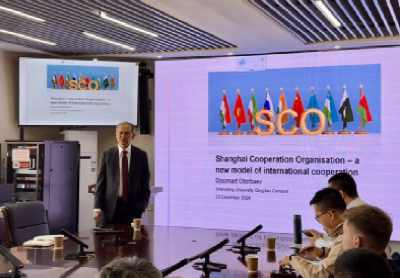
At the beginning of the lecture, Professor Otorbaev focused on the new model of international cooperation within the Shanghai Cooperation Organization (SCO), elaborating on the SCO's origins, development, membership structure, and its significant role in the global economy and geopolitics. He then reviewed the institutionalization process of the SCO, highlighting its role in maintaining regional peace, security, and stability, and promoting the establishment of a new, democratic, just, and equitable international political and economic order. Furthermore, by introducing a series of infrastructure projects and trade cooperation initiatives promoted by the SCO, such as the China-Kazakhstan Horgos Cooperation Center, the China-SCO Local Economic and Trade Cooperation Demonstration Zone, and the construction of multiple cross-border railway lines, Professor Otorbaev pointed out that the SCO has not only facilitated economic ties among member countries but also injected new vitality into the overall development of regional security, economy, education, and other areas. Additionally, Professor Otorbaev emphasized the achievements of SCO cooperation in the field of education, including the regular convening of meetings of ministers of education, the conduct of joint research, and the development of digital education. These efforts have not only contributed to improving the quality of education in various countries but also provided a broad platform for exchanges and mutual learning among the younger generation.

During the interactive Q&A session, faculty members and students engaged in lively discussions and exchanges on topics such as Central Asian countries' responses to great power competition, relations among SCO member countries, and the effectiveness and autonomy of the SCO mechanism. Professor Sheng Li expressed gratitude to Professor Otorbaev for his presence and sharing, noting that as a model of multilateral cooperation among countries, the SCO's "Shanghai Spirit," centered on mutual trust and mutual benefit, is being accepted by more and more countries, which indicates that the SCO will continue to grow and develop in the future.
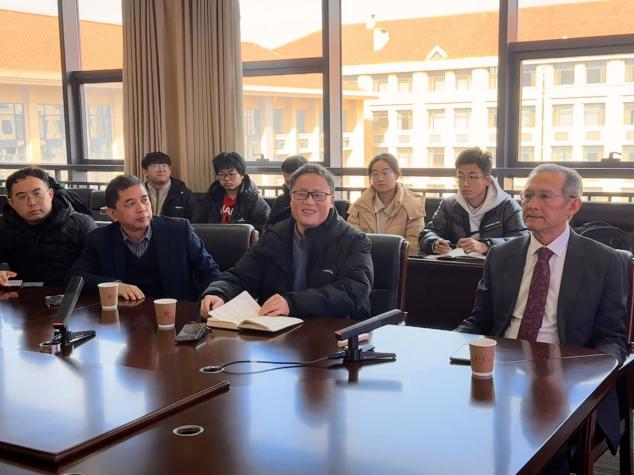
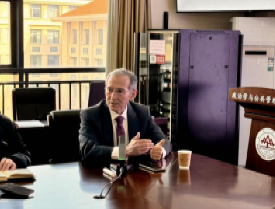
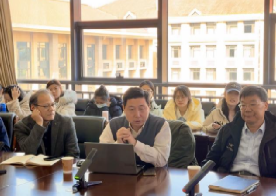
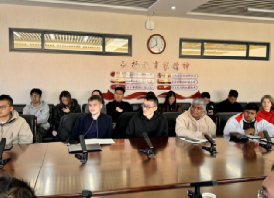
This lecture provided a comprehensive understanding of the SCO as a new model of international cooperation for the attending faculty and students, offering a platform for discussions on the SCO's role in promoting regional and even global peace and development. The School of Politics and Public Administration, Shandong University, is committed to providing high-quality professional academic resources from both domestic and international sources for its faculty and students. The school hopes that its faculty and students will continue to pay attention to its information and the Cooperation and Development lecture series organized by the Institute for SCO Studies.
